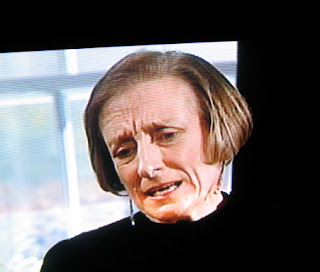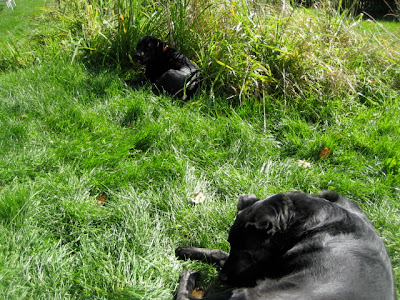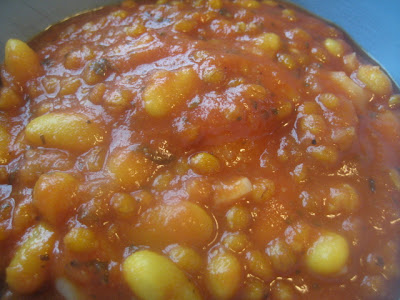I've been thinking all week about the September
Garden Bloggers' Bloom Day. There are a few things still in bloom like this Autumn Joy sedum. Isn't that a wonderful plant? I've moved mine three times until it finally arrived at the perfect spot and it came through every time.

And my dear hollyhock.

The brown-eyed Susans that pop up here and there on the lawn.

And the great, great late season phlox, called Miss Lingard, I believe.


They look so delicate and fragile here in the rain, but they are the strongest, most vigorous of all my flowers. The smell perfumes the air and any room where I have a bouquet. I just love them. When I was little, we used to eat the flowers, and I recently tried one, and they still taste good!
This dwarf delphinium has been one of the new flowers this summer. I put it in the vegetable garden beside a tomato plant, and it has bloomed and bloomed. Just lovely.

The wildflowers are past their glory. This is a space we call the "rocky pasture." The tansy, the goldenrod, the aster, and the milkweed are fading quickly. But still, there is a beauty; subdued but calming in a way.

And then, a view of something we've had eight years today, and it is still blooming quite nicely!

So, it is time to start cutting back the spent plants, and cleaning up the vegetable garden. Since I don't have so many beautiful flowers to show you, and won't for EIGHT long months, I thought I'd take this opportunity to review the summer garden.
If you visited my blog you saw many daylilies. They were my summer love. There was such beauty everywhere I looked in the yard. The iris had a good year, though I think I'm finished with the bearded variety. Many of mine didn't bloom and truly, I'm not that fond of them anyway, but we'll see if they come up next year. I was delighted with the Bright Lights cosmos and the dwarf delphinium. I am thrilled beyond words to have hollyhock blooms, and since I planted one that bloomed and one that didn't I heartily hope the one that didn't will shine next summer. The little tag promised it would grow even in zone 2. Fingers crossed. This is the one flower I remember from my mother's garden and this is the first year I've ever had success. I love my potted geraniums which I've now brought inside, and I hope to see them next summer looking as radiant as this year.
In the vegetable garden, the shining stars were the onions, garlic, and leeks. Oh, what success, what size, what taste!! Those
peas I mentioned didn't amount to much. We had a couple good meals and then they just faded. The sweet peas were even more of a misery. One or two flowers on many plants. The vines just died. The
yellow beans I raved about were great at first, but got too big too fast. Next year I
must plant every few days instead of all at once. Geez, it takes me a long time to learn such an easy lesson. The lettuce was marvelous, and we actually had it almost every day. We plan to grow it under the lights all winter. The zucchini was terrible. We put it in a new place in a pile of old, rotted manure, but the leaves were yellow and the fruit barely grew. We moved it to try something different because I never, ever have enough zucchini. I love it, and could cook with it 3 or 4 times a week,
if the stuff would grow like zucchini is supposed to. So, next year the seeds will go back into the garden proper and we'll see. The tomatoes are coming in and are okay, but I'm seriously thinking of just growing cherry tomatoes next year and skipping the big ones that take so long to ripen. And I'm going back to the cherries I grew last year, Peacevine. They were so great, and I tried something new this year which wasn't nearly as prolific, early, or tasty.
So there you have it. Some great successes, some spectacular failures; just like every other year I have gardened since I was 25 years old.


















































